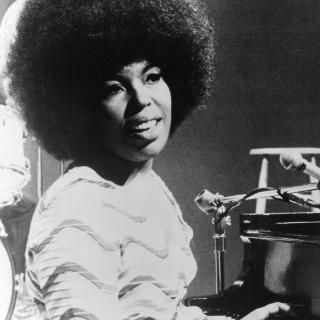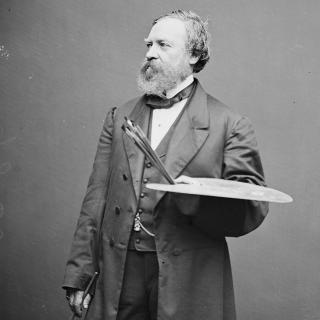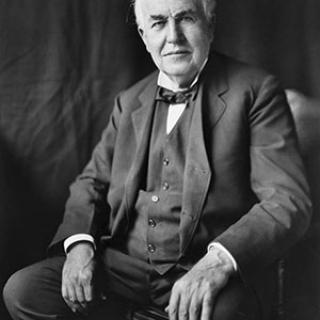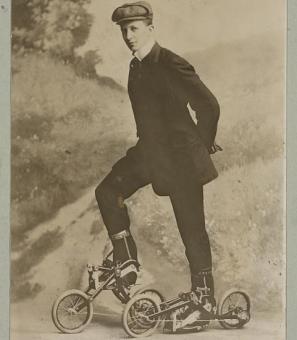Advice from Eleanor Roosevelt
The Roosevelt family's roots are in New York, but they clearly had a strong connection to Washington, D.C. Having two presidents and a first lady in the ranks will do that. In that sense, it's fitting that D.C. is home to one of the largest Roosevelt archives today. No, we're not talking about the Library of Congress or the National Archives (though assuredly those repositories have plenty of stuff on Theodore, Franklin and Eleanor). No, we're talking about The Eleanor Roosevelt project at The George Washington University.
The premise of the project is that Eleanor Roosevelt was one of the most important voices of her time but that her voice has been marginalized in the historical record. The project aims to "return ER’s voice back into the written record and uses this rich history’s contributions to train approximately 6,000 teachers, 500 civil society leaders, 100 policymakers, and countless citizens around the world to study and apply her writings, knowledge and strategy in their various arenas."
The project, which was founded in 2000, with strong support from the National Archives, the National Endowment for the Humanities, the George Washington University, a host of private donors has put a huge selection of Eleanor's writings online, including all 8,112 editions of the My Day column, which was syndicated in newspapers across the country from 1935–1962. Those are interesting.
But the real gold in the collection might be the digitized If You Ask Me, advice column that Eleanor wrote for Ladies Home Journal and, later, McCall's magazine. The column ran from 1941–1962. In it, Eleanor addressed reader questions of all sorts — from personal questions about her relationship with Franklin, to her stance on Civil Rights, to whether or not spanking was an appropriate method of disciplining children. It really ran the gamut.
Here are a few of our favorite responses.
At various times I have heard that you and Mr. Roosevelt are separated, but that you live together to keep down scandal in the United States. I do not believe this is at all true. Will you please answer this so that I may read it in black and white?
You are young, I imagine, and therefore your question is neither impertinent nor malicious. It is the kind of question, however, which, when I was young, we were taught belonged to the realm of things about which one might speculate, but never talk. Gossip of the kind which you have heard is whispered about almost all people in public life, and no one should notice it. (December 1941)
What was the most amusing occurrence in the White House since your advent there?
I cannot think of any except, perhaps, when five hundred people were expected at a reception, and only four came, and we found later that the invitations had never been issued. It was not only amusing, but it gave me some unexpected extra time, which is always welcome. (January 1942)
Do you approve of junior-high-school girls or high-school girls wearing cosmetics to look grown-up?
No, I do not approve of using cosmetics to appear grown-up. I should think it would be simpler to wait until leaving high school before trying to enhance your good looks. (February 1942)
For his great courage and foresight should not Gen. William Mitchell be honored by a memorial in Washington?
I do not really know how people who are to be honored by memorials in Washington are chosen. It seems to me, though, that they should be very carefully chosen, and on the whole it would seem wiser to me to honor more people in their own home states rather than in the District of Columbia, which cannot continue indefinitely to find sites for memorials. (August 1942)
What prewar conveniences do you miss the most?
One of the things which we had in the White House before the war was as many flowers as we wanted. Now we are kindly given flowers from other Government greenhouses in Washington, because the greenhouses belonging to the White House have been torn down for military reasons.
We naturally do not have as many as we had before, and I miss them very much. This, however, is not a convenience. It is a pleasure.
I cannot think of any other inconveniences which really trouble me—except, perhaps, the fact that I felt I was not entitled to drive my own car in Washington and I like to drive myself. In addition, the curtailed use of the White House cars makes it necessary to plan for more time in order to keep such engagements as seem really important. This means that I have to work at home later at night, since I can’t do as much at home in the daytime. (April 1943)
I know the experts say marriage should be a 50-50 affair, but don’t you honestly think most wives are happier if the husband is just slightly more the boss?
I think people are happier in marriage when neither one is the boss, but when both of them are willing to give as well as take. (September 1944)
Check out The Eleanor Roosevelt Project on the GW website for more of ER's wit and wisdom.


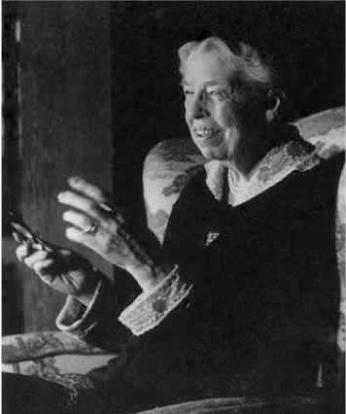
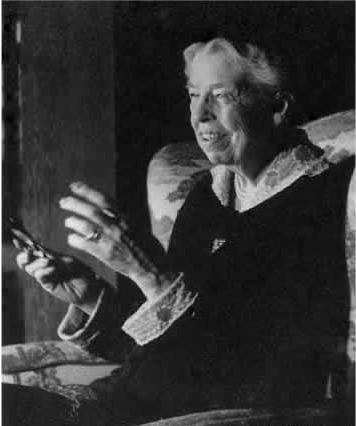
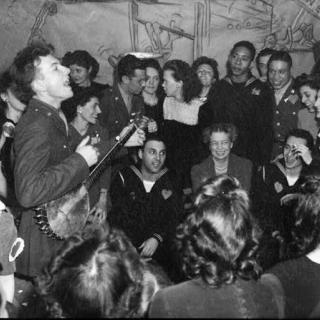
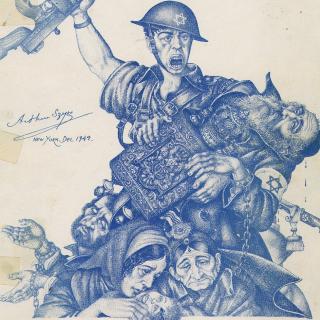

![Sketch of the mythical fuan by Pearson Scott Foresman. [Source: Wikipedia]](/sites/default/files/styles/crop_320x320/public/2023-10/Goatman_Wikipedia_Faun_2_%28PSF%29.png?h=64a074ff&itok=C9Qh-PE1)







